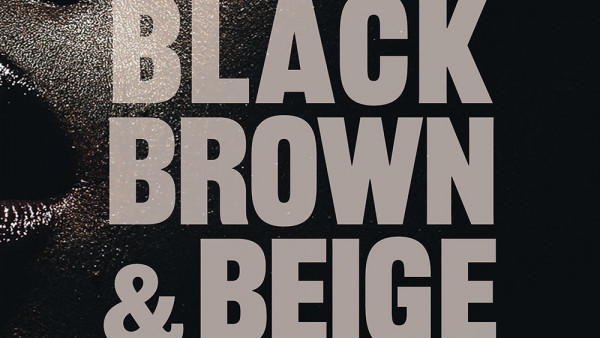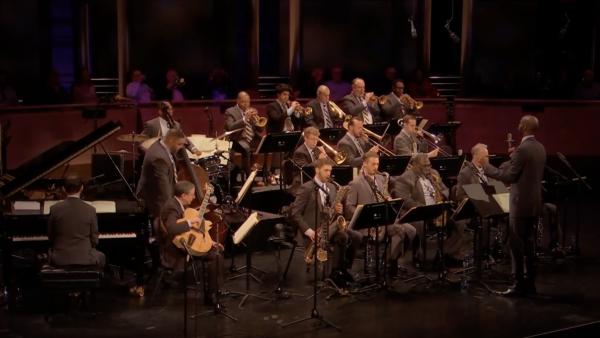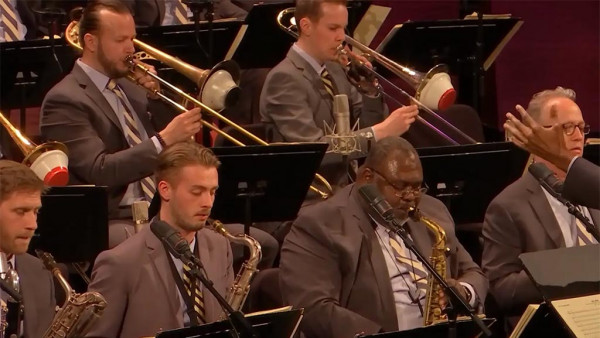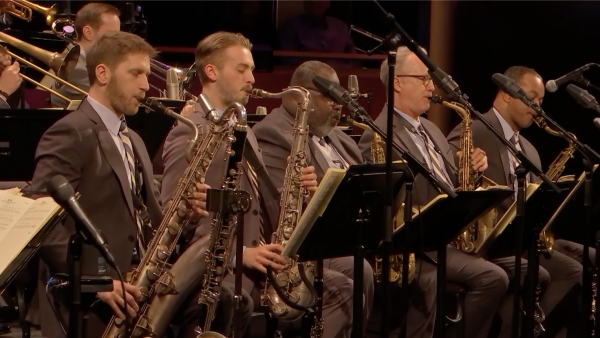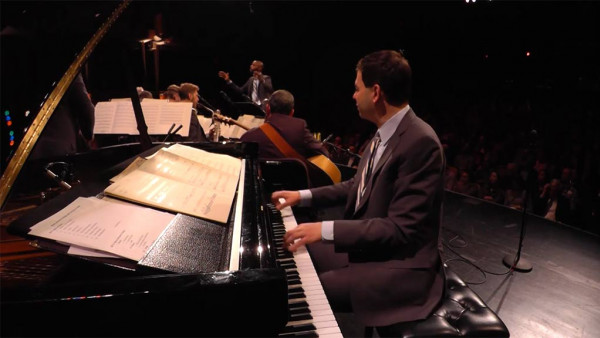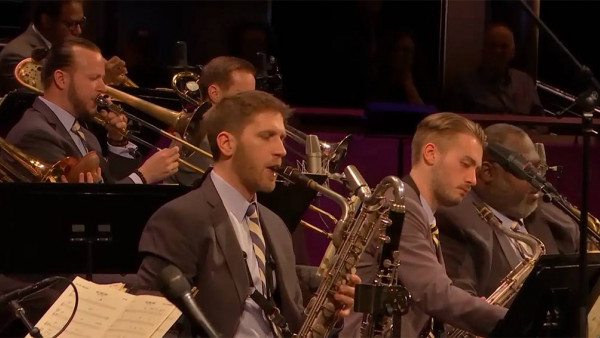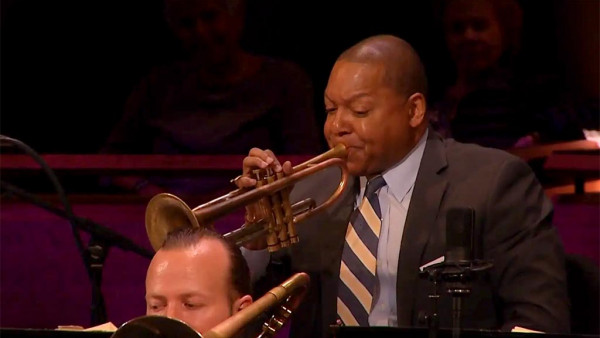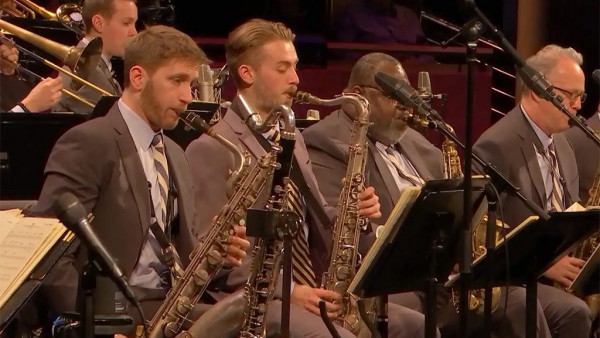Blue Engine Chronicles Jazz at Lincoln Center Orchestra Performances
Since it was founded in 2015, Blue Engine Records has been documenting the work of the Jazz at Lincoln Center Orchestra—an effort gathering steam with a series of digital releases suffused with musical, social and even spiritual import.
Leading the way is the March 6 release of the Duke Ellington masterwork Black, Brown And Beige. Premiered by Ellington at a 1943 Carnegie Hall concert, the work, a sprawling survey of African-American history, is notable for its range of vernacular music, depth of thematic development and quality of the counterpoint in the orchestration, according to Wynton Marsalis, JALC managing and artistic director.
“Black, Brown And Beige is a singular piece in the history of jazz in its mastery of form,” he wrote in an email.
The piece, Marsalis noted, was harshly criticized in its time, souring Ellington on performing it in its entirety after the Carnegie Hall concert: “It received an attack that was far greater than what a singular masterpiece of this kind deserved just because it so definitely challenged the racial prejudice of the day—a prejudice that still exists. The jazz musicians and black musicians were always OK as long as they stayed on the plantation. For Duke Ellington, it was too much ambition.”
But the piece is revered today, and the recording will hold a special place in the Blue Engine catalog. Drawing on a 2018 performance organized and conducted by trombonist Chris Crenshaw—who synthesized the available score and previous recordings—it will be the JLCO’s first album dedicated entirely to Ellington, whose music was the orchestra’s focus in its early years.
“We want to remind people that Black, Brown And Beige still resonates and has as much value as when Duke presented it in Carnegie Hall,” said Gabrielle Armand, Jazz at Lincoln Center’s vice president of brand, sales and marketing.
In its scope—and its focus on race and culture—Black, Brown And Beige established a template that Marsalis used in formidable works like the Grammy-winning Black Codes From The Underground and Blood On The Fields, the first jazz composition to win a Pulitzer Prize.
Building on that tradition is The Ever Fonky Lowdown, which is slated for a spring release. The piece, which had its premiere in 2018 and was recorded last year, features a smart, tart score and a scathing libretto delivered by actor Wendell Pierce, who, in character as the money-loving Mr. Game, is the vehicle through which economic exploitation is explored. In a 2019 speech, Marsalis likened the piece to a metaphorical “game of buying in and selling out.”
“It was provocative and is provocative,” Armand said, adding that she expected these works to have special relevance in an election year.
Extolling the “deep writing” of The Ever Fonky Lowdown, bassist Carlos Henriquez said he valued the platform such works provided for artists to adopt an activist stance.
“We as musicians feel we’re part of this political movement,” said Henriquez, who arranged and conducted the 2014 concert that became 2018’s Grammy-nominated Una Noche Con Rubén Blades.
Armand said that the initial tranche of releases this year will bring the Blue Engine catalog to about 25—a number that is projected, over the next five years, to rise to 100. Ultimately, she said, the albums will be a varied lot. But they will all adhere to a set of guiding principles laid out by Marsalis. One principle, called “Legacy,” reads: “Celebrate our history and traditions as we create the present moments of the future.”
By Phillip Lutz
Source: Downbeat


